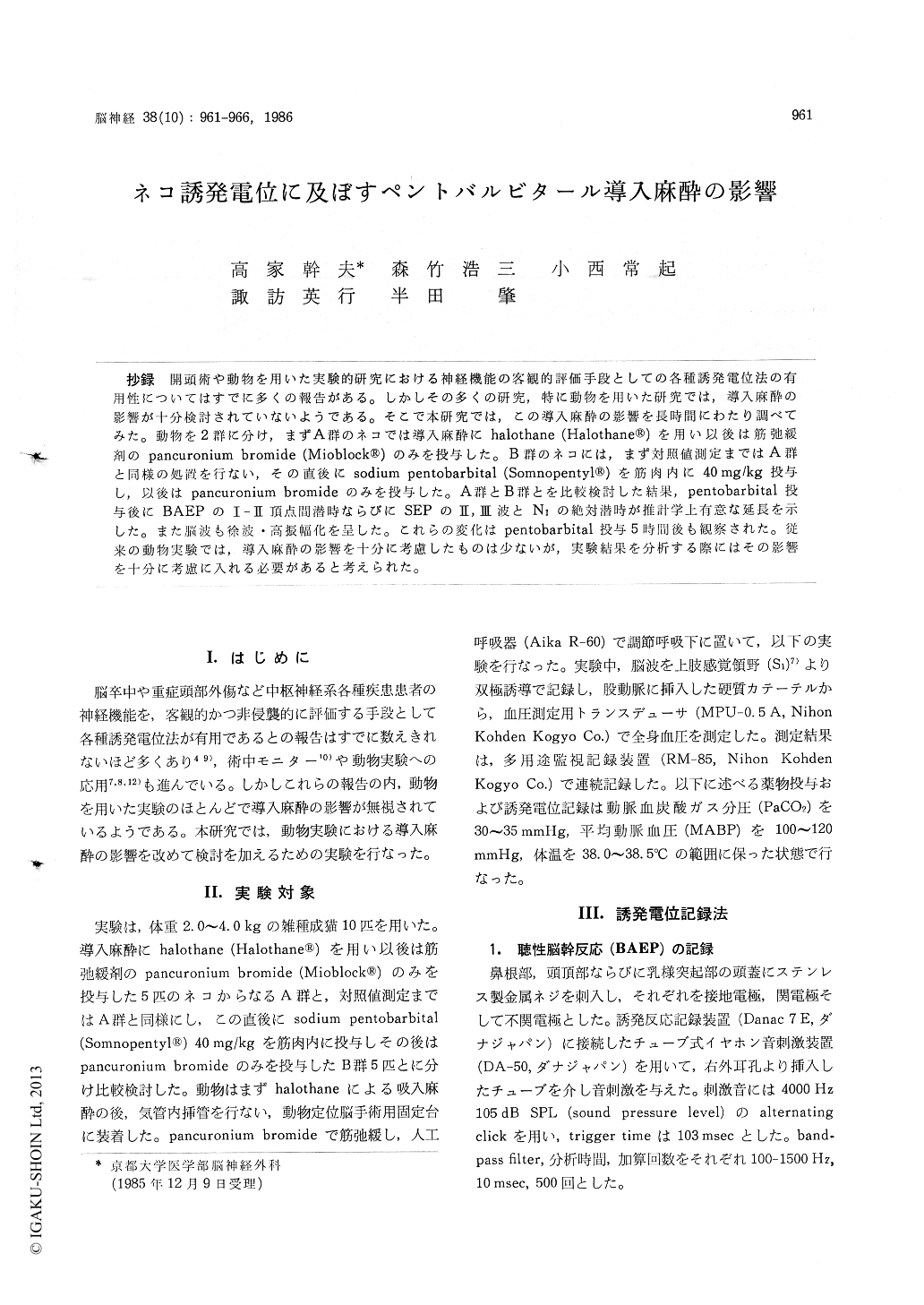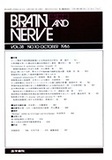Japanese
English
- 有料閲覧
- Abstract 文献概要
- 1ページ目 Look Inside
抄録 開頭術や動物を用いた実験的研究における神経機能の客観的評価手段としての各種誘発電位法の有用性についてはすでに多くの報告がある。しかしその多くの研究,特に動物を用いた研究では,導入麻酔の影響が十分検討されていないようである。そこで本研究では,この導入麻酔の影響を長時間にわたり調べてみた。動物を2群に分け,まずA群のネコでは導入麻酔にhalothane (Halothane ®)を用い以後は筋弛緩剤のpancuronium bromide (Mioblock ®)のみを投与した。B群のネコには,まず対照値測定まではA群と同様の処置を行ない,その直後にsodium pentobarbital (Somnopentyl®)を筋肉内に40mg/kg投与し,以後はpancuronium bromideのみを投与した。A群とB群とを比較検討した結果,pentobarbital投与後にBAEPのI-II頂点問潜時ならびにSEPのII,III波とN1の絶対潜時が推計学上有意な延長を示した。また脳波も徐波・高振幅化を呈した。これらの変化はpentobarbital投与5時間後も観察された。従来の動物実験では,導入麻酔の影響を十分に考慮したものは少ないが,実験結果を分析する際にはその影響を十分に考慮に入れる必要があると考えられた。
During the last decade, noninvasive electro-physiological tests with sensory evoked potentials have rapidly blossomed into useful clinical tools. They have been studied in large groups of normal subjects and in patients with a wide variety of neurologic diseases. Almost all experimental animal studies on sensory evoked potential, however, have not been undertaken under sufficient consideration on the effects of drugs used for induction into anesthesia on evoked potentials. In order to use evoked potentials as a tool for assessing neurol-ogical function in animals, it is necessary to know the effect of anesthetic agents on evoked poten-tials. Pentobarbital, Somnopentyl®, is one of the drugs most commonly used for induction into anesthesia in animal experiments. Authors have attempted to study the long term effects of pen-tobarbital on evoked potentials. Intramuscular administration of anesthetic dose of pentobarbital was followed by prolongation of II and III waves of SEP and I-II interpeak latency of BAEP. Latency of Ni of SEP was also prolonged. On electro-encephalogram, amplitude have increased and fre-quency have got slower after pentobarbital ad-ministration. These electrophysiological changes persisted over 5 hours after pentobarbital ad-ministration.
These results suggest that in some studies on animals the residual effect of agents used for in-duction into anesthesia must be taken account for analysis of data obtained.

Copyright © 1986, Igaku-Shoin Ltd. All rights reserved.


